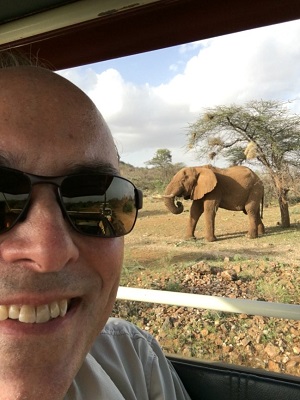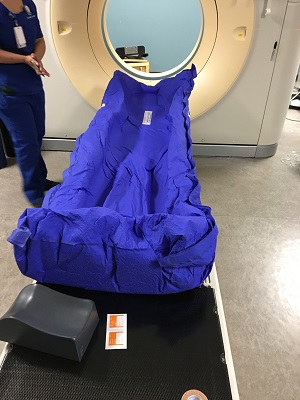Expected to Die. One Man’s journey to life from stage IV, incurable cancer
Part 5: Dealing with cancer recurrence
This is part 5 of my blog series. If you haven’t read the previous parts in the series, it is best to start with part one, Daddy’s dying.
What if the cancer treatments and alternative treatments aren’t enough and the cancer starts to grow again? That is what happened to me in 2017 when the primary tumor on the pancreas began to grow. The oncologist was concerned that it could grow into the aorta, the artery that carries oxygenated blood from the heart to the rest of the body. He recommended surgery to remove 2/3rds of my pancreas and my spleen, hoping to cut out all the tumors. Not as drastic as a Whipple procedure, but pretty serious. With only the head of my pancreas remaining, I could become a diabetic and may not be able to digest food without medication.
This was a huge decision. We gave it a lot of thought and prayers and decided that we would go ahead with it, thinking I could rid myself of any primary tumors on the pancreas once and for all. So, we met with a new surgeon at Moffitt who explained the procedure. As with all surgeons, he wanted to do it immediately, but we had previously learned not to rush. Plus, we had an amazing vacation planned to go on a safari in Kenya for 10 days. The kind of safari where you take pictures, not a gun. This was already booked, and we would be heading out in 3 months. So, we told the surgeon to schedule it after our return in late June. He was not happy about this. He thought we were crazy and should be taking the cancer issue much more seriously, but we would not be swayed and so we booked it for the summer. Guess what? I didn’t die in the meantime, and we had the most amazing adventure we had ever experienced. I wouldn’t trade that for the world. Get busy living!

Around this time, I asked my wife Michele what she thought we should do when our youngest child, Jackson, graduated from high school in 2019. She said maybe we should buy an RV and travel the country. And that’s exactly what I was thinking as well! So, we decided right there and then that in 2019, we would quit our jobs, sell our house and nearly all of our possessions, buy an RV and travel the country for a year. Making that decision marked a change in my thinking and the way I looked at life that gave me something incredible to work towards. A life changing experience. Despite my growing tumor, pending surgery and an ‘incurable cancer’, I would become a nomad in 2 years!
Lesson Learned: It is important as a cancer patient to have something in the future to work towards, despite the cancer
And then it was time for the surgery. This one made me very nervous. Would losing most of my pancreas and all of my spleen affect my quality of life? There was a definitely possibility of that. But there was also a potential quality of life benefit. My cancer surgeon had recommended a plastic surgeon to handle closing me up with a new technique to prevent another hernia. I had been living with my second softball sized hernia for years now and it really sucked. The idea of fixing this issue once and for all was very appealing. So, it was to be two surgeons for the price of, well two, but working together.
This surgery really knocked me for a loop. I awoke with a tube down my nose which is really uncomfortable. I had another huge incision from my sternum to my, wait a minute… no belly button anymore! They didn’t mention that would happen. Now, there would be no way to prove I was human, I guess.
The surgeon said that they got the cancer out with “clear margins”, meaning there were no cancer cells at the outer margin of the tissue that was removed. Supposedly this would mean, no more cancer on the pancreas.
Since this surgery involved removing most of my pancreas, the recovery was much tougher as I could not digest food and could not leave the hospital until everything was working. But I got up and walking quickly with the help of therapists and serious pain medication. I was out of work for a month and spent my time recovering.
Unfortunately, on the very next MRI just 9 months after surgery, a new and faster growing tumor had developed on what remained of my pancreas. This, of course, was very bad news. Now, I was regretting the pancreas surgery. After all, the main purpose was to get rid of the main tumors and stop from growing again. And it failed spectacularly, leaving me with a faster growing tumor than I had in the first place and all the negatives of removing so much of the pancreas. It now seemed I would need to take enzyme medication for life in order to digest my food and the glucose (sugar) levels in my blood were elevated.
At this point, my oncologist recommended proton beam radiation focused on this single tumor. Lovely. More treatments. And so, in the spring of 2018, I met with yet another doctor who would manage my radiation treatments. The cool thing about the photon beam radiation treatments is that you do not have to be opened up. The beam will travel right through your skin and focus directly on the tumor. But it has to be very precise. What they do is create a mold, which will vary depending on where your tumor is, that will keep you from moving around. Here is my customized mold.

In addition, they did a trial run and gave me 3 blue-dot tattoos that would be used for alignment purposes. Still have them. They are my only tattoos.
With the mold created and the tattoos in place, I began the radiation treatment which I had to do every weekday for 8 weeks. It was super convenient, however, because the cancer center was literally across the street from my office, so I could pop in, get the radiation and get back to work quickly. There were a lot of unpleasant side effects related to the radiations impact on my digestive system, but I won’t gross you out with the details. Suffice it to say, I won’t be doing radiation treatment ever again, though the side-effects stopped after the radiation was complete.
In fact, I decided in 2018 not to have any further traditional cancer treatments. No more surgery. No more chemo. No more radiation. The only thing I would continue doing was having my monthly hormone shots that were supposedly keeping the liver tumors in check.
After all, I had more important things to think about, like how we would sell, give away and throw away a lifetime of stuff, how we could ready the house to put on the market in less than a year and if we would have enough money to make this RV excursion happen. So much to do and so many unknowns such as what kind of RV would we need and how fast would we be able to buy one after closing on the house. Where would our mail go? What if we needed healthcare? Could we really afford this? What if I couldn’t get a job again and where would we live after the year was up? How would we get internet service so I could find a job while we were on the road? And what was it like living in an RV? We had never even been inside one before!
And so, I thought little of cancer and cancer treatments as we made radical changes in our lifestyle.
Lessons Learned:
1: Focus on finding out what cancer you have before thinking about cutting it out.
2: Do not let them rush you. Take your time and make good decisions.
3: Trust your instincts. Don’t be afraid to do something different than your doctor suggests.
4: Take time to find a specialist, especially if you have a rare condition.
5: Learn and get support from other patients going through what you are going through.
6: Question if the medications are necessary. Is there some alternative? Consider the cause of the condition and see if there is anything that can be done to address the cause rather than treat the symptoms.
7: Doctors are not God. They do not fully understand how the human body works and often are focused only on their specific area of expertise.
8: Do not rely solely on doctors. Take control of your own healthcare.
9: It is important as a cancer patient to have something in the future to work towards, despite the cancer
Check out Part 6 in the series: Radical life changes.
Disclaimer: I am not a physician nor any kind of healthcare worker. Nothing I say should be taken as medical advice. I will simply tell my story for my particular situation and hope you will get something out of it.
